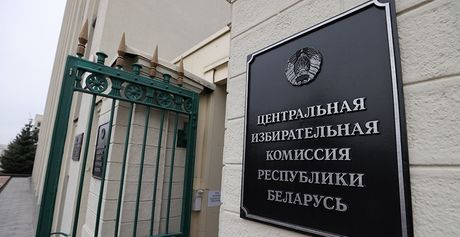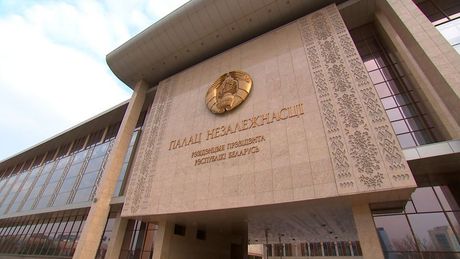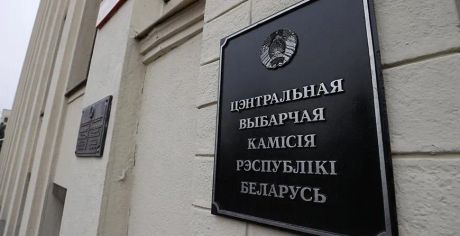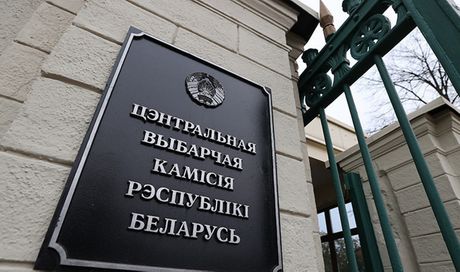Government suggests dramatic overhaul of Belarus' land laws
13:10, 15 February
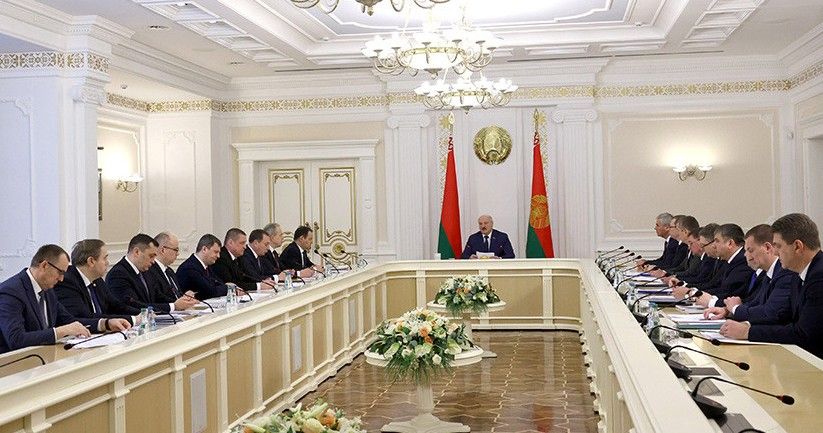
Photo: BelТА
The government suggests a dramatic overhaul of the country's land legislation. This matter was discussed at a session hosted by Belarusian President Aleksandr Lukashenko on 15 February, BelTA has learned.
- Share on Facebook
- Share on VK
- Share on Twitter
“The government believes that time has come for a serious upgrade of the current legislation. It has submitted its proposals in the form of a bill,” the head of state said.
Aleksandr Lukashenko outlined a number of fundamental issues that should be considered before making any decision.
The first thing the president wanted to know was why the existing land laws needed to be revised. “What needs to be done to make them better? Another traditional question: are these proposed amendments well timed, are they really needed and who needs them? Peasants, people who have always lived on this land or someone else, who took advantage of rather low land prices (land prices are on the rise now) to buy these land plots near Minsk, inside the ring road and today want to be free to do with this land whatever they want?” the president asked.
Aleksandr Lukashenko spoke about a possibility of transferring a number of essential powers of the head of state to a lower level. Thus, it is proposed to allow allocating land plots of up to one hectare for the construction of private houses. “Can the governors say today that we have enough land so that anyone can be granted up to one hectare without destroying forests? As far as I know, today we cannot allocate even 6-10 ares to everyone who wants it (at least in the places of their choice). Therefore, I would like to hear the answer to this question,” Aleksandr Lukashenko said.
The proposed amendments provide for easing the legalization of illegally occupied plots, changing the intended purpose of a construction project before it is completed. In this regard, the president raised a number of questions, because at present it is almost impossible to legalize illegally occupied land plots. Another common situation is when a person takes land for building a house and for farming the land, and after a while wants to use this land for completely different purposes. “Well, what were you thinking about when you applied for this land?” the head of state asked rhetorically.
In addition, the Council of Ministers believes that time has come to allow people, including those who got land plots on preferential terms, to do with this land what they think fit. “Again, as I have asked at the beginning, who benefits from such amendments? I am not objecting yet. I am just asking,” the president said.
The head of state was told that there is no unequivocal opinion on the bill yet. There are serious concerns that it will create loopholes that will be exploited for misuse, speculation and simply unfair land trading. “Will it not open up opportunities for those who have earned funds one way or another and now want to buy out the country's best land plots, while the majority of people will be left behind? Those who have worked the land their entire lives. Does the bill really address the problems and concerns of most of the Belarusians?” Aleksandr Lukashenko asked.
According to Aleksandr Lukashenko, people can be allowed to build a second house on their land plot if it is big enough: “There were many such cases. I remember we dealt with such situations in Brest Oblast. For example, a son wanted to build something on the land plot where his parents lived, he had half a hectare, but he could not do it. We had to deal with this situation. This is quite a problem and it needs to be resolved. If there is enough space and a son or a daughter wants to build a house next to their parents or make some kind of extension, they should be able to do it. This is their land.”
Aleksandr Lukashenko recalled that what he demanded was not building new towns near Minsk and thus creating a mega-agglomeration with one third of the country's population: “I gave an instruction to think of some incentives to distribute people evenly around the country. Maybe, somewhere not far from Smolensk [the territory of Belarus near the border with Russia, not far from the city of Smolensk]. This land can be sold at a low price or given for free. And we have plenty of such land.”
“We have enough little distant villages, hamlets and simply beautiful places 150-200 kilometers away from large cities that were and are settled by people. People settled down there, put it into shape and were masters of their own land,” the head of state said.
Aleksandr Lukashenko recalled that the country has already amassed some successful experience in developing urban-type settlements and territories around them, and there are many plots that can be transferred to people. “This is what is important for us today - to distribute everything,” the Belarusian leader stressed.
Moreover, in the immediate vicinity of Minsk there are land plots that could be put into use, if this matter is approached in a businesslike manner. Sometimes such sites are less convenient for construction and require additional investment. “Don't we have enough rich people? Just offer and show them. They will come, buy, and pay twice as much. Therefore, idle lands with access roads should be distributed and put into use. Even a smallest hamlet has at least some field road nearby. And there is electricity there, 100%, because people lived there once. It is highly likely that rich people will want to buy this hamlet to enjoy the silence and fresh air,” the head of state noted.
The second task set by the president was to eliminate unnecessary paperwork and remove excessive administrative barriers and bureaucracy. For example, with this in mind a decision was recently taken regarding the sale of empty houses in the countryside.
In general, Aleksandr Lukashenko noted that land relations and proposed amendments in this field are not a simple thing. “If we approach it in the wrong way, we will get a slap in the face from the people... And it will be deserved. I am just pointing to problems, bottlenecks. In fact, this is a serious matter and it is me who needs to take decisions,” he remarked.
“We will apply a balanced approach to all changes. The provision of land plots should not only bring economic benefits to the state, but it should also go down well with the public and help resolve people's issues. Land is our national treasure and the most important resource. We should not only use it rationally, but we should also to preserve it for future generations. Therefore, agricultural and forestry lands will remain state-owned,” the president stressed.



